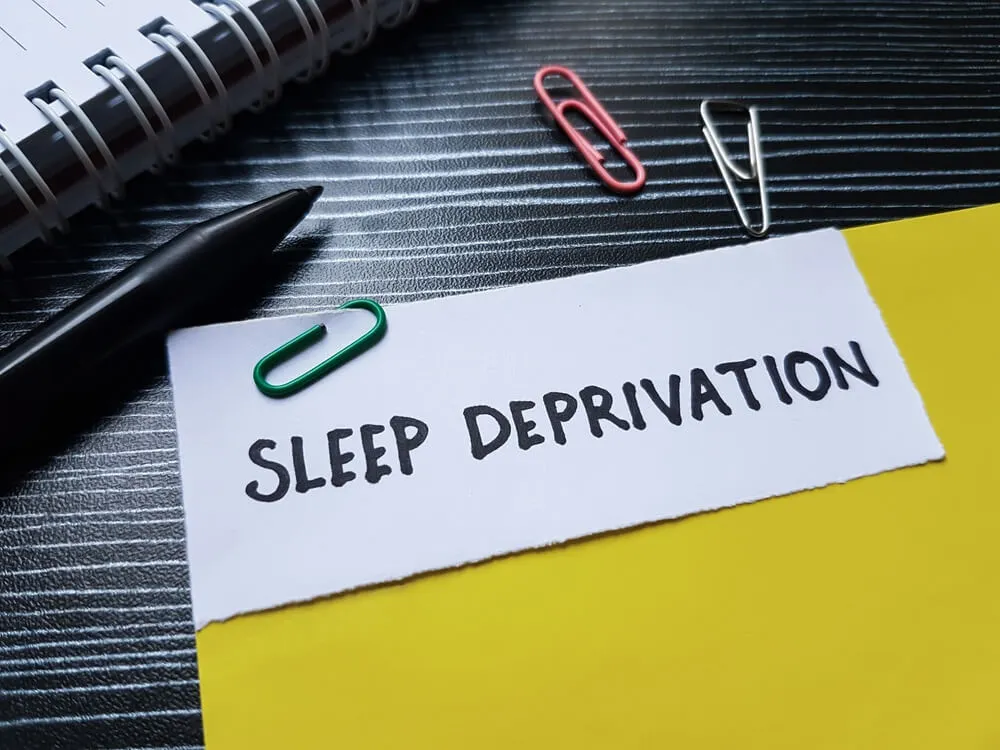Sleep deprivation is lack of needed sleep

Understanding Sleep Deprivation
Hey there! Have you ever tossed and turned at night, staring at the ceiling while the clock ticks away? You’re not alone! Sleep deprivation is a common struggle that affects countless people, leading to a cascade of health issues and fatigue. But what exactly is sleep deprivation? Simply put, it’s the lack of needed sleep, which can stem from various factors like stress, lifestyle choices, or even sleep disorders.
When we don’t get enough shut-eye, our bodies and minds pay the price. Think about it: how often do you feel groggy, irritable, or unable to concentrate after a poor night’s sleep? That’s sleep deprivation in action! It’s not just about feeling tired; it can impact your overall health, productivity, and even your mental well-being. So, let’s dive into the nitty-gritty of sleep deprivation and explore how to reclaim those precious Zs.
The Causes of Sleep Deprivation
There are many culprits behind sleep deprivation, and understanding them is the first step toward better sleep. Here are some common causes:
- Stress and Anxiety: Life can get overwhelming, and when worries creep in, they can keep you awake at night. Whether it’s work deadlines or personal issues, stress can wreak havoc on your sleep patterns.
- Poor Sleep Hygiene: This refers to habits that negatively affect your sleep quality. Things like using electronics before bed, irregular sleep schedules, or consuming caffeine late in the day can all contribute to restless nights.
- Sleep Disorders: Conditions like insomnia or sleep apnea can severely disrupt your sleep. If you find yourself waking up frequently or struggling to fall asleep, it might be time to consult a healthcare professional.
Understanding these causes can empower you to make changes that promote better sleep. So, let’s tackle the effects of sleep deprivation next!
The Effects of Sleep Deprivation
The consequences of sleep deprivation can be far-reaching. Here’s a closer look at how it affects you:
- Cognitive Impairment: Lack of sleep can lead to difficulties with memory, decision-making, and concentration. You might find yourself struggling to focus on tasks or forgetting important details.
- Physical Health Issues: Chronic sleep deprivation is linked to various health problems, including obesity, diabetes, and cardiovascular diseases. Your body needs rest to repair and rejuvenate!
- Mental Health Struggles: There’s a strong connection between sleep and mental health. Sleep deprivation can exacerbate anxiety and depression, creating a vicious cycle that’s hard to break.
Recognizing these effects can motivate you to prioritize your sleep. But don’t worry; there are plenty of strategies to help you improve your sleep quality!
Tips for Improving Sleep Quality
Ready to reclaim your nights? Here are some effective sleep tips to help you get the rest you deserve:
- Establish a Sleep Routine: Go to bed and wake up at the same time every day, even on weekends. This helps regulate your circadian rhythm, making it easier to fall asleep and wake up refreshed.
- Create a Sleep-Friendly Environment: Make your bedroom a sanctuary for sleep. Keep it cool, dark, and quiet. Consider using blackout curtains, earplugs, or a white noise machine to block out distractions.
- Limit Screen Time: Try to avoid screens at least an hour before bed. The blue light emitted by phones and computers can interfere with your body’s natural sleep-wake cycle.
- Practice Relaxation Techniques: Incorporate mindfulness practices like meditation or deep breathing exercises into your evening routine. These can help calm your mind and prepare you for sleep.
- Watch Your Diet: Be mindful of what you eat and drink before bed. Avoid heavy meals, caffeine, and alcohol, as they can disrupt your sleep.
Implementing these strategies can significantly improve your sleep quality and help combat sleep deprivation.
Finding the Right Solutions
If you’re still struggling with sleep despite trying these tips, it might be time to explore additional sleep solutions. Consider consulting a sleep specialist or exploring cognitive behavioral therapy for insomnia (CBT-I), which has proven effective for many individuals.
Don’t hesitate to reach out to online communities or forums where you can share experiences and gain insights from others facing similar challenges. Remember, you’re not alone in this journey!
Final Thoughts on Overcoming Sleep Deprivation
In wrapping up, sleep deprivation doesn’t have to control your life. By understanding its causes and effects, and implementing effective strategies, you can reclaim your nights and enhance your overall well-being. Prioritize your sleep, and you’ll notice a positive shift in your energy levels, mood, and productivity.
So, take a deep breath, and let’s make sleep a priority! Sweet dreams await!





